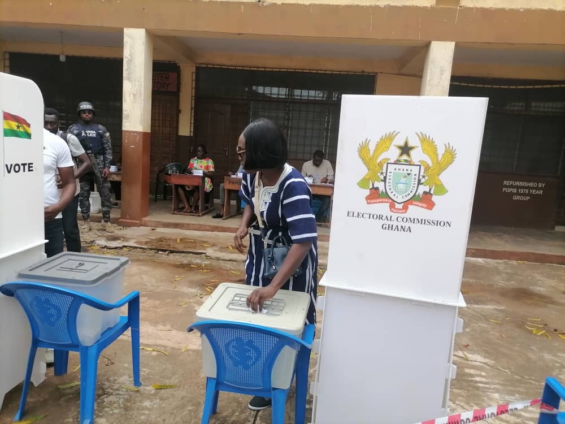The Executive Director of Rise Ghana, Awal Ahmed Kariama, is convinced that the quality of leadership at the local government level would significantly improve should the law be amended to allow for the election of mayors.
According to him, providing the opportunity for citizens to elect their local government authorities ensures accountability to the people and quality leadership as mandate is now derived from the people and not from the appointing authority.
He said in countries where this transition has been made, it had improved efficiency and created a marketplace of ideas that significantly contributed to the development of the districts.
Speaking on JoyNews’ PM Express, he is optimistic that the amendment of the law to allow for mayoral elections would provide a level playing ground for citizens to vote and be voted for in local government elections, instead of the winner takes all situation we have now.
“The election of DCEs, first of all we want to ensure that there is a level playing ground for everybody, the appointment is not held by the centre. And once we know that you’re elected on a competitive basis and you’re accountable to the people who have elected you, then it brings efficiency. And then also it will come to a system where there is a lot of competition at the grassroots level, it opens up for ideas.
“You know, when we talk about the appointment people are appointed basically based on political parties and the appointing authority determines who gets appointed. But with the elections we’ll have more quality of people coming in and there’s a lot of diversity coming inside there, and that alone is going to bring a lot of quality and competition.
“And you know that once the accountabilities are stronger and related to the people, you derive the mandate from the people then the quality of the leadership that you’re going to deliver would be far far better,” he said.
In 2019, President Akufo-Addo had initiated actions to hold a referendum to introduce the multi-party system in Ghana’s local government system.
However, following stiff opposition from the National Democratic Congress and other civil society organization who had raised concerns that the introduction of a multi-party system would increase the polarization of politics in Ghana, the referendum was abandoned.
According to the Director of the Institute of Local Government Service, Prof. Awortwi, who was also on the show, currently consensus building is ongoing in order to reach a common agreement on the fate of politics at the local government level, as the President has expressed determination to have mayors elected.
Latest Stories
-
Ghana ranked 7th globally as biggest beneficiary of World Bank funding
8 mins -
IMF board to disburse $360m to Ghana in December after third review
12 mins -
Former Bono Regional NPP organiser donates 13 motorbikes to 12 constituencies
18 mins -
Securities industry: Assets under management estimated at GH¢81.7bn in quarter 3, 2024
23 mins -
Gold Fields Ghana Foundation challenges graduates to maximise benefits of community apprenticeship programme
2 hours -
GBC accuses Deputy Information Minister Sylvester Tetteh of demolishing its bungalow illegally
2 hours -
Boost for education as government commissions 80 projects
2 hours -
NAPO commissions library to honour Atta-Mills’ memory
2 hours -
OmniBSIC Bank champions health and wellness with thriving community walk
3 hours -
Kora Wearables unveils Neo: The Ultimate Smartwatch for Ghana’s tech-savvy and health-conscious users
3 hours -
NDC supports Dampare’s ‘no guns at polling stations’ directive
3 hours -
Police officer interdicted after video of assault goes viral
3 hours -
KNUST’s Prof. Reginald Annan named first African recipient of World Cancer Research Fund
3 hours -
George Twum-Barimah-Adu pledges inclusive cabinet with Minority and Majority leaders
4 hours -
Labourer jailed 5 years for inflicting cutlass wounds on businessman
4 hours

